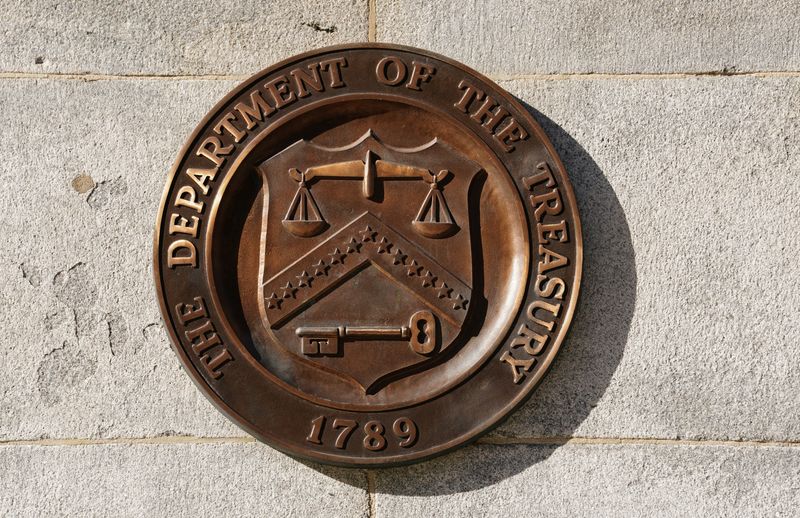
By Alden Bentley
NEW YORK (Reuters) – Foreign holdings of U.S. Treasuries hit a record in May, the Treasury Department reported on Thursday, while a decline in Japan’s huge stockpile closely coincided with what appeared to be the start of intervention to support its currency.
Holdings of U.S. Treasuries rose to $8.129 trillion in May from a revised $8.04 trillion in April.
Treasury International Capital System (TICS) data showed that the sum total of all net foreign acquisitions of long-term securities and banking flows was a net inflow of $15.8 billion, comprised of $7.3 billion of private inflows and $8.6 billion of net foreign official inflows.
U.S. Treasuries firmed in May, easing yields lower as investors anticipated the Federal Reserve would cut interest rates this year. The expected time frame for easing was pushed back as the Fed said it would wait to pivot until inflation came more in line.
The benchmark 10-year Treasury note yield fell to 4.512% from 4.684% during the month, while the yield on the two-year note fell to 4.893% from 5.046%.
Japan’s stash of Treasuries shrank to $1.128 trillion from $1.15 trillion in April. Japan remains the largest foreign holder of U.S. Treasury securities. China, which is No. 2, saw its holdings fall to $768 billion from $770 billion in April.
Market participants have been focused on Japan’s Treasury debt holdings as a reserve of dollars due to the threat of intervention from the country’s monetary authorities to bolster the yen. Japanese authorities appeared to intervene to sell dollars and buy yen several times since late April.
“Foreign holders were largely net buyers and that’s consistent with interest rates actually slipping over course of the month,” said Gennadiy Goldberg, head of U.S. rates strategy at TD Securities in New York. “Japan was the big standout, likely due to the intervention.”
(Reporting by Alden Bentley; Editing by Stephen Coates)